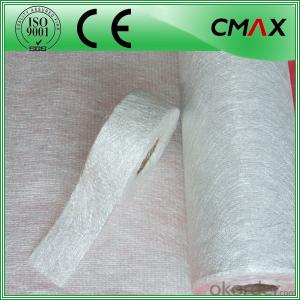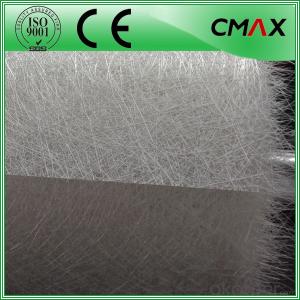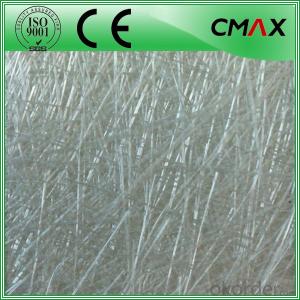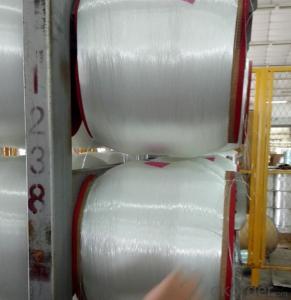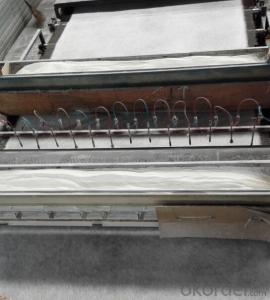Chopped Strand Mat ,Fiberglass Mat Jushi Strand Mat
- Loading Port:
- China main port
- Payment Terms:
- TT OR LC
- Min Order Qty:
- 1000 m.t
- Supply Capability:
- 1000000 m.t/month
OKorder Service Pledge
OKorder Financial Service
You Might Also Like
Chopped Strand Mat ,Fiberglass Mat Jushi Strand Mat
Introduction:
Fiberglass chopped strand mat is a non-woven E-or C-glassfiber mat, product manufactured by spreading continuous filament roving of 50mm in length randomly and uniformly in combination with polyester binder in powder form (or other binder in emulsion from). This product is characterized by good combination of resin, easy operation, good wet strength retention, good laminate transparency and low cost. It is suitable for the applications of hand lay-up FRP moldings, such as various sheets and panels, boat hulls, bath tubs, cooling towers, corrosion resistant, vehicles etc.
Function:
Fiberglass chopped strand mat is chopped using the "E" chopped glass and emulsion adhesive bond. It is suitable for hand lay and can enhance the unsaturaed ployester resins.
Product Features:
Consistent thickness and stiffness;
Rapid impregnating and good compatibility with resin;
Superior wet through with less air trap;
Good mechanical properties and high strength of parts.
Superior acid corrosion resistance
Technical Data:
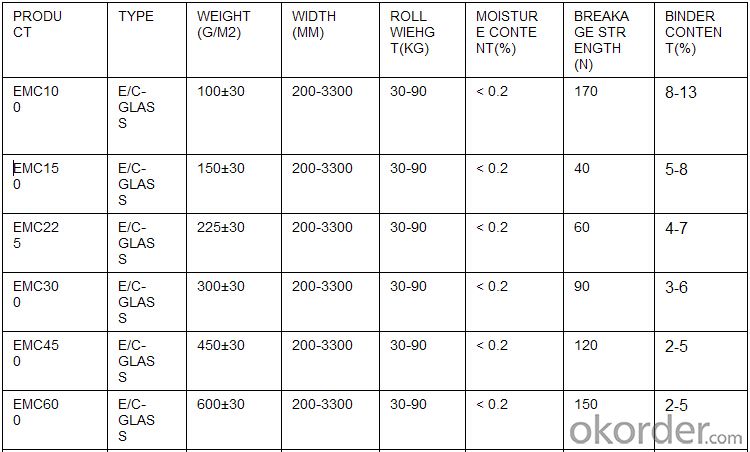
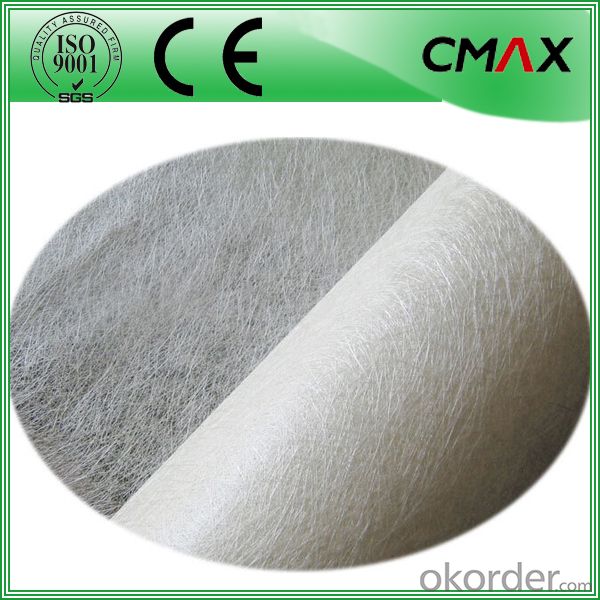
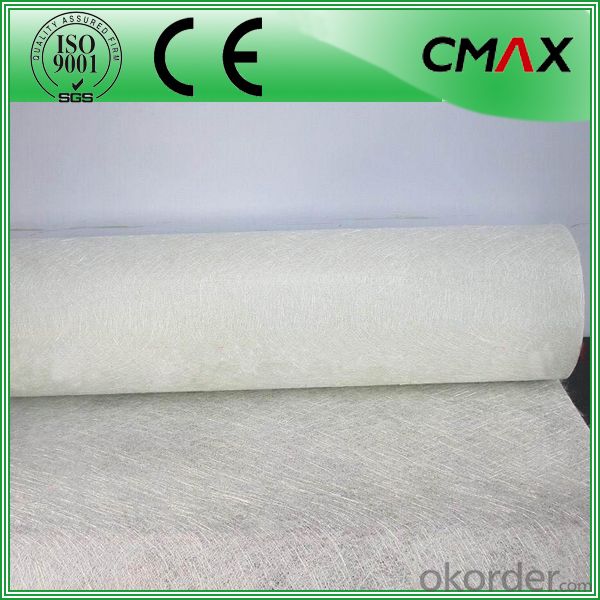
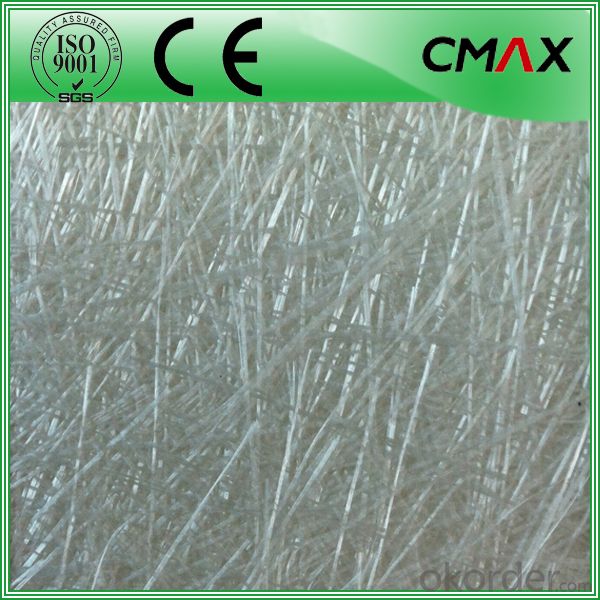
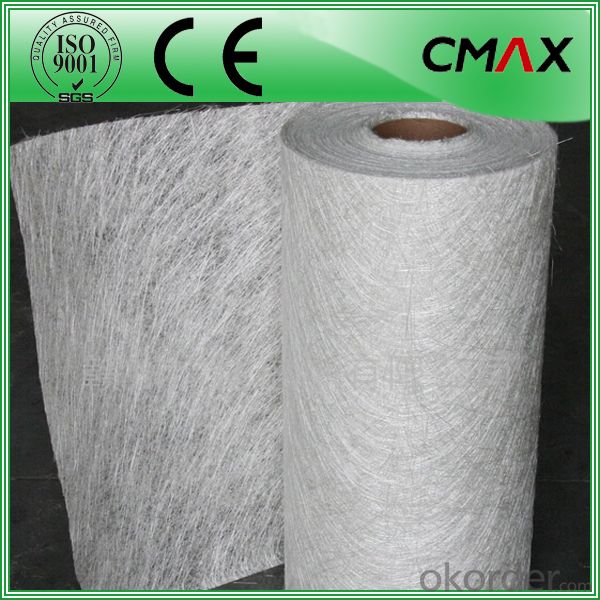
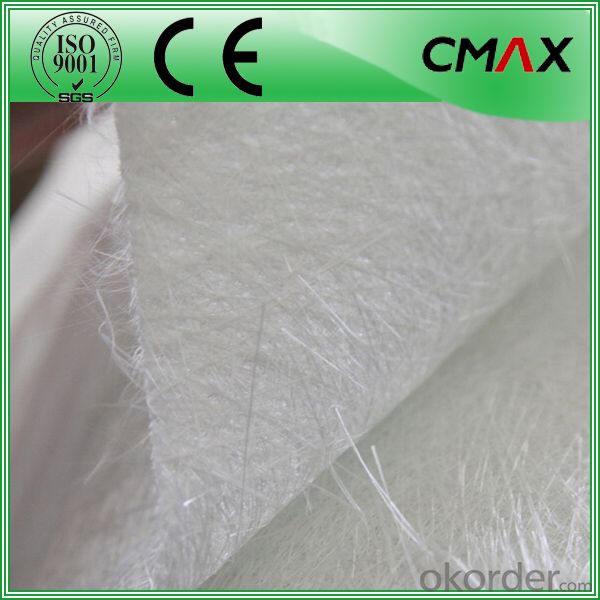
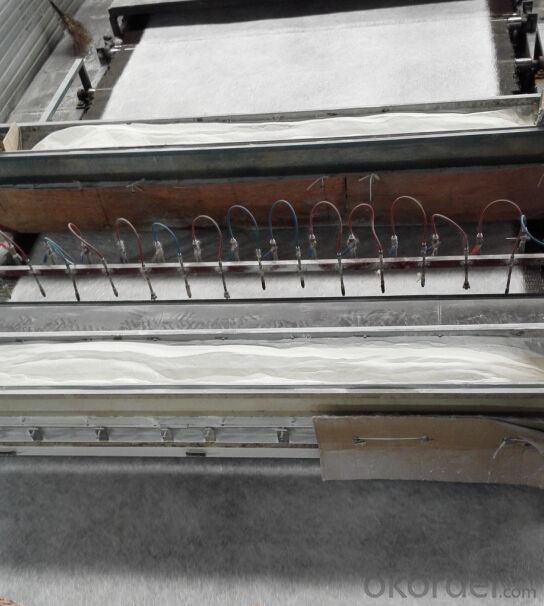
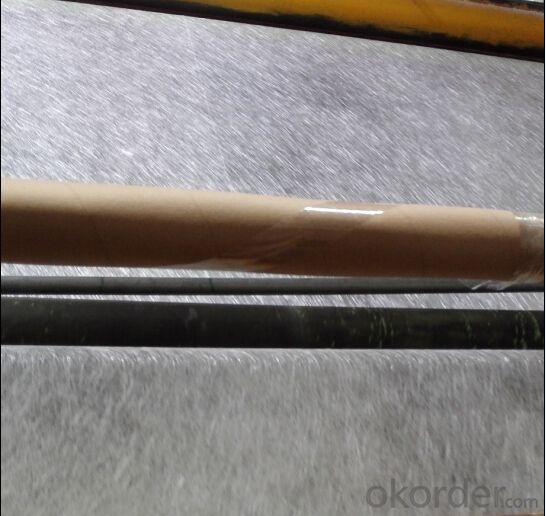
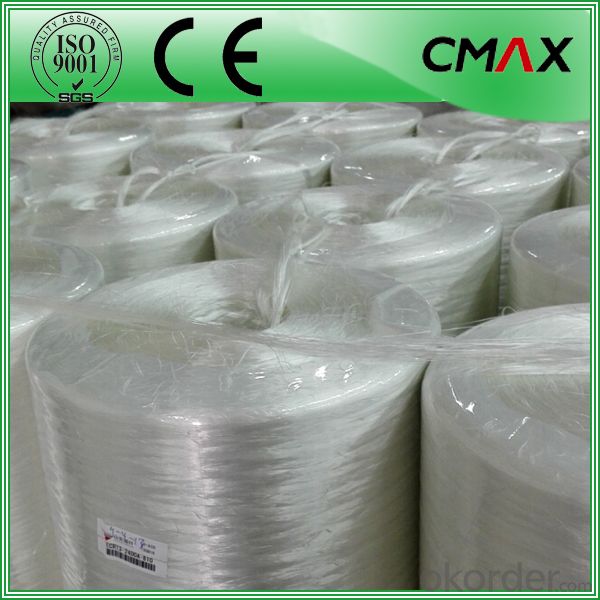
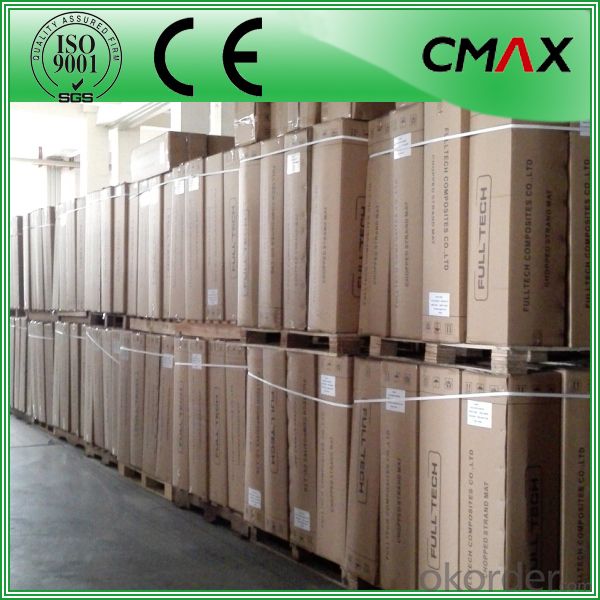
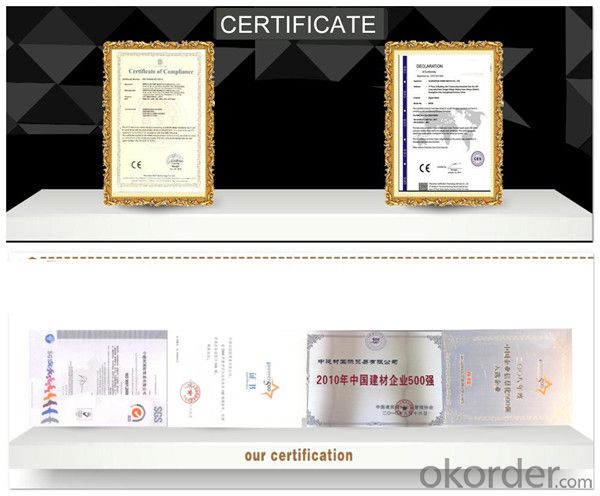
FAQ:
Is sample available ?
Yes, we provide the free samples, but customers themselves need pay the shipping fee
What's your MOQ?
Our MOQ is one 1*20' full container loading
How do you pack the fiberglass
(1) First, the mat is in roll packed in White PE fIlm.
(2) Then the rolls packed in the carton
4.Which knid of payment terms can you accept?
We can accept 30% prepayment, 70% payment before shippment. LC is also accepted
- Q:Can fiberglass mat tissue be used for flooring applications?
- For flooring applications, fiberglass mat tissue is a viable option. Composed of glass fibers, this thin, non-woven fabric offers a lightweight and flexible solution. Its exceptional strength and durability further contribute to its suitability for diverse flooring uses. To reinforce flooring systems like vinyl or linoleum, fiberglass mat tissue can serve as a layer of support. By preventing cracking or warping, it adds strength and stability. Typically, the mat tissue is embedded in adhesive or resin, establishing a robust bond between the flooring material and the subfloor. Furthermore, fiberglass mat tissue can function as an underlayment during flooring installations. It acts as a barrier between the subfloor and the flooring material, providing insulation, soundproofing, and moisture resistance. This protective measure safeguards against moisture damage, reduces noise transmission, and maintains a comfortable indoor environment. In summary, fiberglass mat tissue is a versatile material that enhances flooring applications. Its strength, flexibility, and moisture resistance make it suitable for various flooring systems, offering improved stability, durability, and comfort.
- Q:Can fiberglass mat tissue be used for thermal insulation?
- No, fiberglass mat tissue is not typically used for thermal insulation. It is primarily used for reinforcing and providing strength to composite materials such as fiberglass sheets or panels. For thermal insulation purposes, other materials such as mineral wool, foam, or cellulose insulation are commonly used.
- Q:Is fiberglass mat tissue suitable for insulation in cold storage facilities?
- Fiberglass mat tissue can be a suitable insulation material for cold storage facilities. Fiberglass is known for its excellent thermal insulation properties, which can effectively prevent heat transfer and maintain low temperatures in the storage area. Additionally, fiberglass is resistant to moisture and does not absorb water, which is important in cold storage facilities where condensation and moisture can be prevalent. The fiberglass mat tissue can be easily installed and provides a cost-effective solution for insulating the walls, ceilings, and floors of cold storage facilities. Overall, fiberglass mat tissue can effectively contribute to maintaining the desired cold temperatures and preventing any thermal leaks in these facilities.
- Q:Can fiberglass mat tissue be used for composite panel manufacturing?
- Composite panels can be manufactured using fiberglass mat tissue, a thin and lightweight material composed of randomly oriented fiberglass strands bonded with a binder. This material is commonly employed as a reinforcement in composite manufacturing processes. In composite panel manufacturing, fiberglass mat tissue is typically mixed with other materials such as resin and a core material. This combination results in a robust and long-lasting panel. The mat tissue reinforces the panel, ensuring the distribution of loads and preventing cracking or delamination. Fiberglass mat tissue is renowned for its exceptional tensile strength, dimensional stability, and resistance to chemicals. These qualities make it highly suitable for use in composite panel manufacturing across various industries, including construction, transportation, marine, and aerospace. In summary, fiberglass mat tissue is a versatile and efficient material that can be effectively utilized in the production of composite panels. Its properties and characteristics make it a dependable choice for creating sturdy and enduring panels for diverse applications.
- Q:Is fiberglass mat tissue resistant to chemicals?
- Generally, fiberglass mat tissue is resistant to chemicals. Its composition, comprising fine glass fibers bonded together with a resin, grants it exceptional chemical resistance properties. This resistance enables the fiberglass mat tissue to endure exposure to various chemicals without deteriorating or compromising its structural integrity. Nevertheless, it is crucial to acknowledge that the precise chemical resistance of fiberglass mat tissue may differ based on the type and concentration of the chemical it encounters. Therefore, it is advisable to consult the manufacturer's guidelines or perform suitable testing to ensure compatibility with particular chemicals.
- Q:What is the typical thickness range of fiberglass mat tissue?
- The specific application and manufacturer can cause the typical thickness range of fiberglass mat tissue to vary. Typically, fiberglass mat tissue can be found in thicknesses ranging from 0.2 mm to 0.5 mm. This range provides flexibility in choosing the suitable thickness according to the desired strength, durability, and specific requirements of the intended use. It is important to mention that slight variations in thickness may occur due to manufacturing processes and individual product specifications.
- Q:Does fiberglass mat tissue provide any UV resistance?
- Yes, fiberglass mat tissue does provide some level of UV resistance. The resin used to bind the fibers in the fiberglass mat tissue helps protect it from the harmful effects of UV radiation. However, prolonged exposure to sunlight can still cause some degradation over time, so additional UV protection measures may be necessary for long-term durability.
- Q:Can fiberglass mat tissue be used for making lightweight panels?
- Yes, fiberglass mat tissue can be used for making lightweight panels. Fiberglass mat tissue is a thin and lightweight material made from fine glass fibers, which are bonded together with a resinous binder. This material is commonly used in the construction industry to reinforce surfaces and provide strength to various applications. When used in panel manufacturing, fiberglass mat tissue can be an excellent choice for producing lightweight panels. The thin and flexible nature of the material allows it to be easily incorporated into panels without adding significant weight. Additionally, fiberglass mat tissue has excellent strength properties, which can contribute to the overall structural integrity of the panels. Furthermore, fiberglass mat tissue can provide insulation and soundproofing properties to the panels, making them suitable for applications where these characteristics are required. The material is also resistant to corrosion and moisture, which enhances the durability and longevity of the panels. Overall, fiberglass mat tissue is a versatile and lightweight material that can be effectively used for making lightweight panels. Its strength, flexibility, insulation properties, and resistance to corrosion and moisture make it a suitable choice for various applications in industries such as construction, automotive, aerospace, and marine.
- Q:How does fiberglass mat tissue perform in terms of thermal expansion?
- Fiberglass mat tissue generally has a low coefficient of thermal expansion, which means it expands and contracts minimally with changes in temperature. This makes it a suitable material for applications where thermal stability is important.
- Q:How does the weight of fiberglass mat tissue affect its performance?
- The performance of fiberglass mat tissue is significantly affected by its weight. The weight of the tissue indicates the amount of glass fibers per unit area. Generally, a higher weight indicates a greater concentration of fibers, which results in improved strength and durability. To begin with, a heavier fiberglass mat tissue provides better tensile strength. The increased number of fibers in the tissue enables it to withstand higher levels of stress and strain without breaking or tearing. This makes it ideal for applications that require a high load-bearing capacity, such as structural components in the construction or automotive industries. Additionally, the weight of the tissue also impacts its stiffness and rigidity. A heavier mat tissue offers better dimensional stability, meaning it will maintain its shape and form even when subjected to external forces. This is crucial in applications where the material needs to retain its structural integrity, such as in boat hulls or wind turbine blades. Moreover, the weight of the fiberglass mat tissue affects its thermal and acoustic insulation properties. A higher weight is usually associated with better insulation capabilities, as the increased fiber density enhances the material's ability to trap air and reduce heat transfer or sound transmission. This makes it suitable for applications that require effective insulation, such as in buildings or industrial equipment. Finally, the weight of the fiberglass mat tissue can impact how easily it can be handled and installed. A lighter tissue may be more flexible and easier to manipulate, making it simpler to fit into complex shapes or tight spaces. Conversely, a heavier tissue might require additional support or equipment during installation. In conclusion, the weight of fiberglass mat tissue has a direct influence on its performance characteristics, including tensile strength, rigidity, insulation properties, and ease of handling. Therefore, it is crucial to consider the intended application and the desired performance requirements when selecting the appropriate weight of fiberglass mat tissue.
1. Manufacturer Overview |
|
|---|---|
| Location | |
| Year Established | |
| Annual Output Value | |
| Main Markets | |
| Company Certifications | |
2. Manufacturer Certificates |
|
|---|---|
| a) Certification Name | |
| Range | |
| Reference | |
| Validity Period | |
3. Manufacturer Capability |
|
|---|---|
| a)Trade Capacity | |
| Nearest Port | |
| Export Percentage | |
| No.of Employees in Trade Department | |
| Language Spoken: | |
| b)Factory Information | |
| Factory Size: | |
| No. of Production Lines | |
| Contract Manufacturing | |
| Product Price Range | |
Send your message to us
Chopped Strand Mat ,Fiberglass Mat Jushi Strand Mat
- Loading Port:
- China main port
- Payment Terms:
- TT OR LC
- Min Order Qty:
- 1000 m.t
- Supply Capability:
- 1000000 m.t/month
OKorder Service Pledge
OKorder Financial Service
Similar products
New products
Hot products
Related keywords

